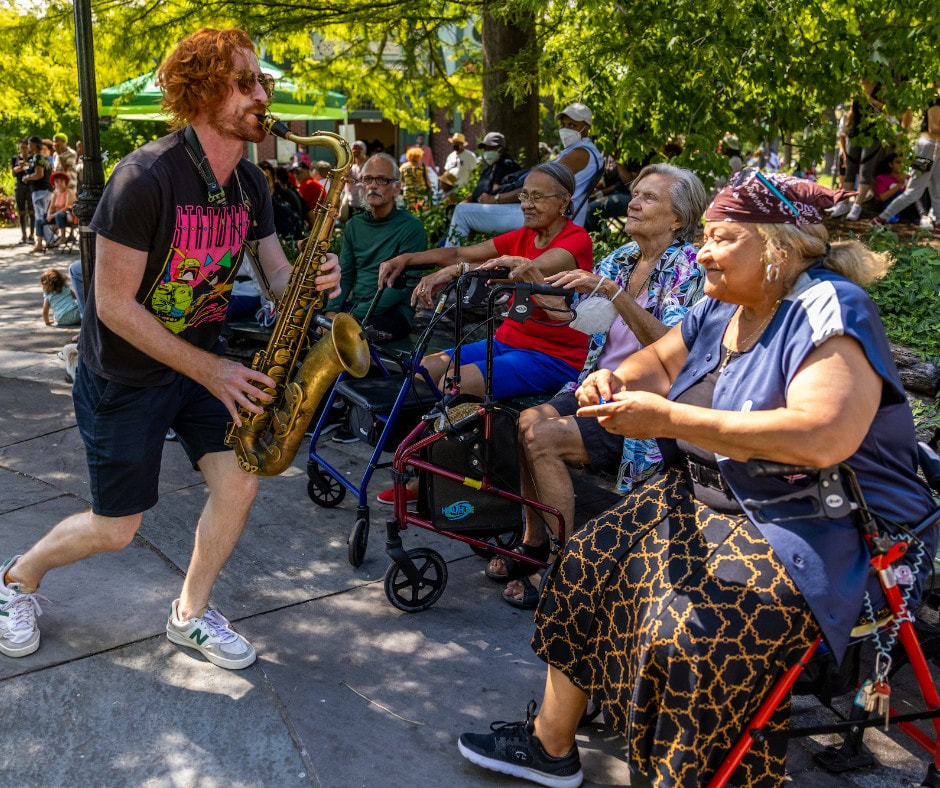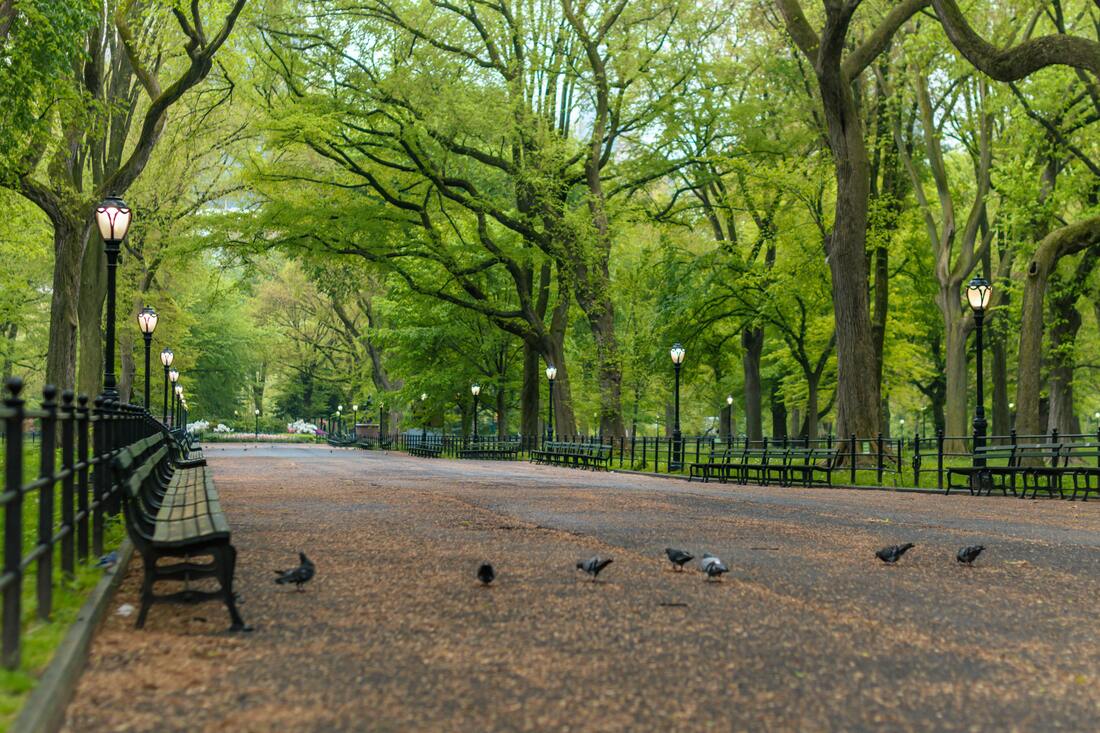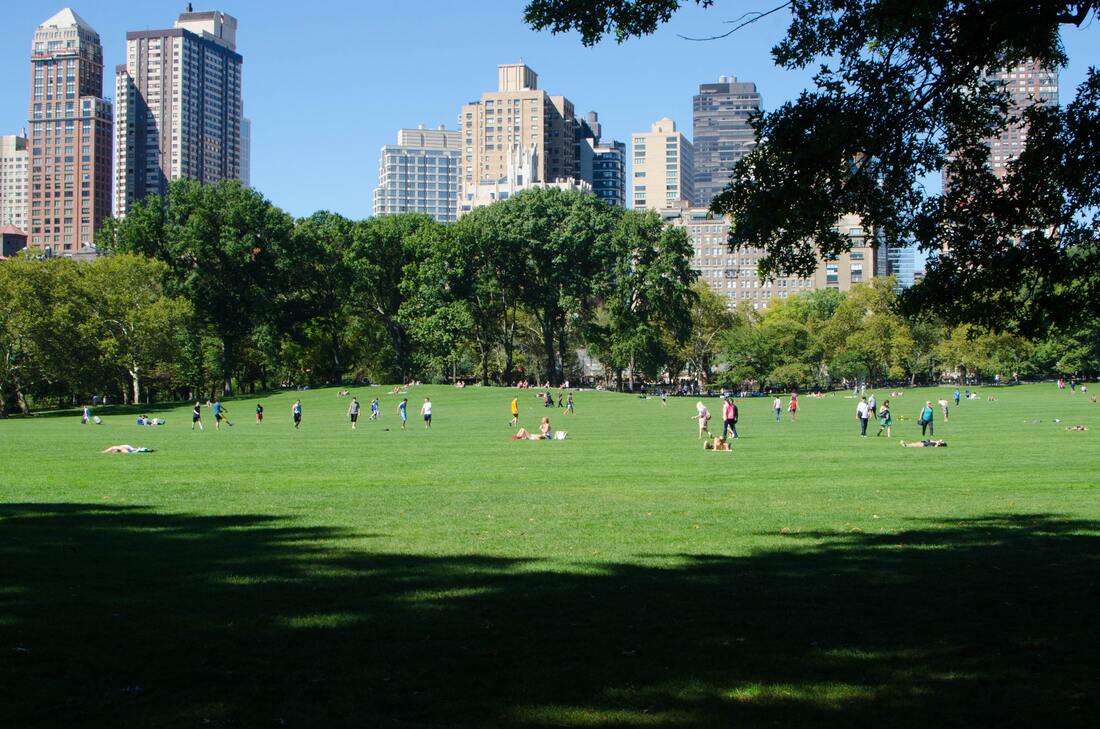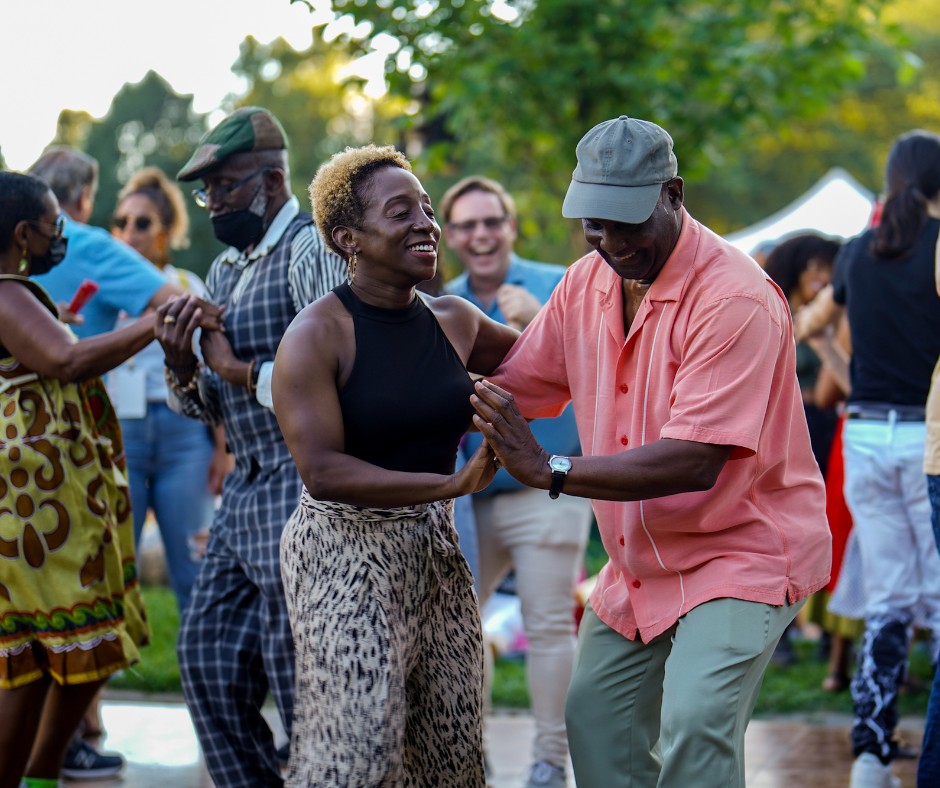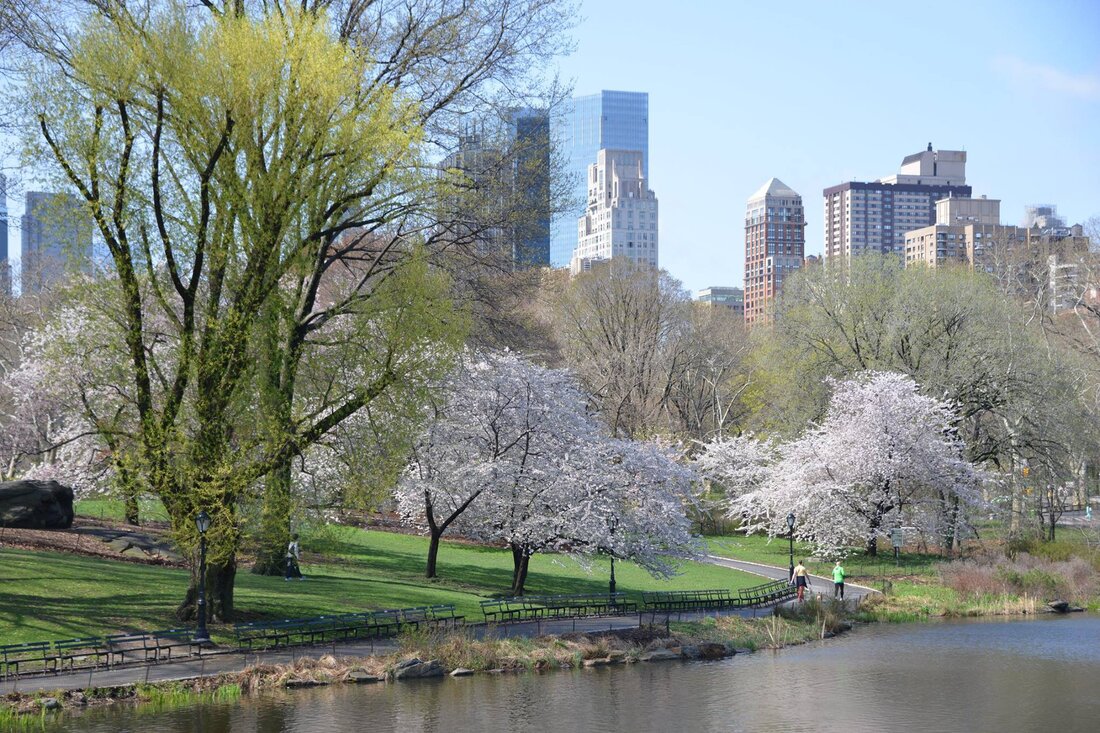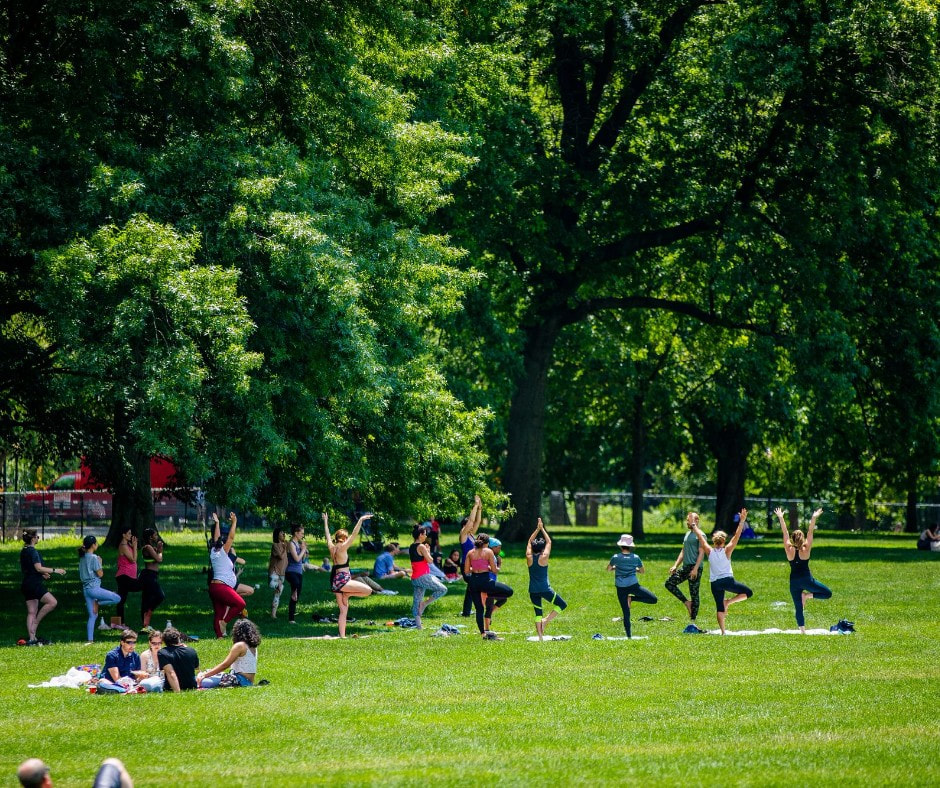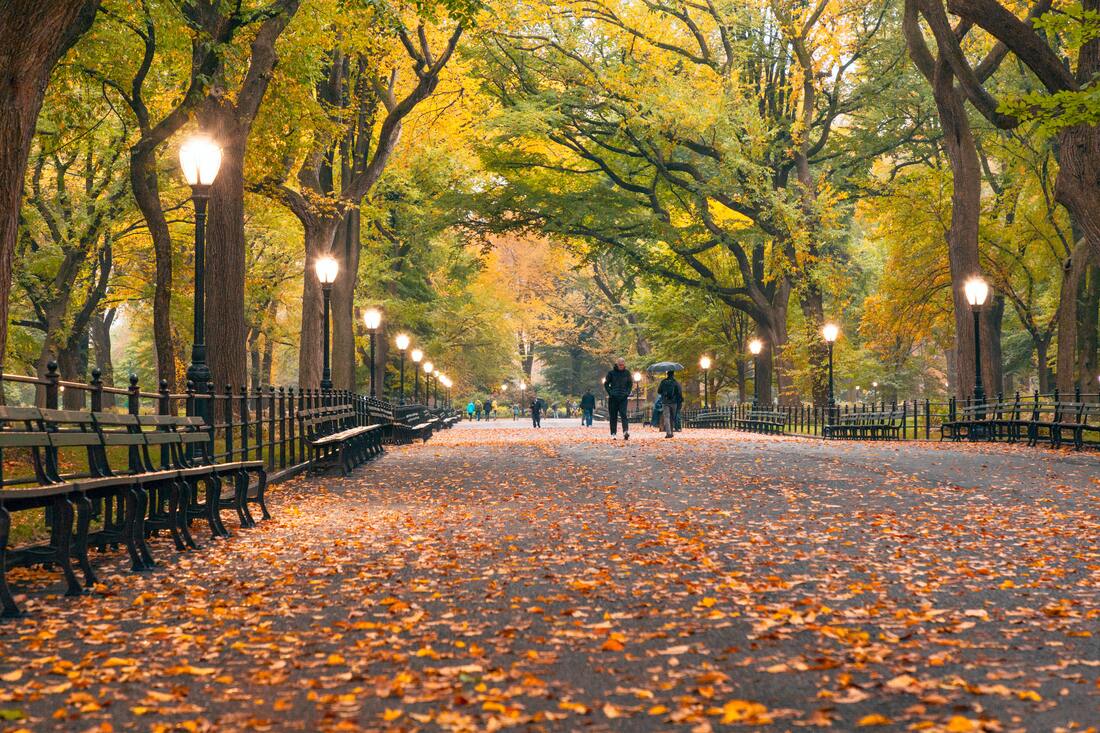All images from Central Park Facebook
God as a Public Park
Imagining God's multiplicity as a welcoming space
receptive to all living beings - and composed of them, too.
You can dance in God and do yoga. You can play soccer in God,
hold hands with your lover, and take walks all by yourself.
There are lots of birds and ponds in God. And frogs, too.
In the summer there are concerts in God. And art shows.
God is the adventure of the universe as one, an eternal companion to the world's sufferings and joys, a lure toward creative transformation, a timeless mind containing all the potentialities of the universe (or at least lots of them), a weaving together of all the world's tragedies and joys, and a public park.
When I say public park, I am referring to God as the world itself, indeed the universe, as the objective content of God's consciousness and thus part of God's very self. And I'm thinking of God's consciousness as a hospitable habitat for the world, where each living being (and all are living) is loved with, in Whitehead's words, a "tender care that nothing be lost." In God's consciousness children are flying kites, lovers are holding hands, and old men are playing chess at the benches. The restrooms are clean, too.
Please note: the children, the lovers, and the old men are truly part of God. So are the restrooms. As a public park God is both the unity of a hospitable heart and the many creatures who partake of it. God is many as well as one. As the philosopher Whitehead puts it: "It as true to say that God is one and the World many, as that the world is one and God many."
Of course not all public parks on Earth are happy places. Some are unkept, some are controlled by gangs, and in some the restrooms are unclean. What makes for a really good public park? Accessibility to all kinds of people; lots of nature, birds, safety, walking paths, public art, cultural events, and cleanliness. This is the kind of public park God is. Except God is not bounded by a city, as in Central Park in New York. God is a public park with no boundaries.
The divine park is inside each of us. As made in God's image, we, too, can be public parks. But the divine park is also around us and beyond us. It includes the whole of the earth and, truth be told, the whole of the universe. Even distant stars and planets, and life on those planets, belong to the divinely public park. Except on other planets there may not be birds, because they may be unique to our planet. We don't really know.
Our unknowing - our sense of mystery and uncertainty - is part of the public park, too. In the public park we can be ourselves. We can fly kites, walk alone, play soccer, and cry. There are no rules except Be Kind.
- Jay McDaniel
When I say public park, I am referring to God as the world itself, indeed the universe, as the objective content of God's consciousness and thus part of God's very self. And I'm thinking of God's consciousness as a hospitable habitat for the world, where each living being (and all are living) is loved with, in Whitehead's words, a "tender care that nothing be lost." In God's consciousness children are flying kites, lovers are holding hands, and old men are playing chess at the benches. The restrooms are clean, too.
Please note: the children, the lovers, and the old men are truly part of God. So are the restrooms. As a public park God is both the unity of a hospitable heart and the many creatures who partake of it. God is many as well as one. As the philosopher Whitehead puts it: "It as true to say that God is one and the World many, as that the world is one and God many."
Of course not all public parks on Earth are happy places. Some are unkept, some are controlled by gangs, and in some the restrooms are unclean. What makes for a really good public park? Accessibility to all kinds of people; lots of nature, birds, safety, walking paths, public art, cultural events, and cleanliness. This is the kind of public park God is. Except God is not bounded by a city, as in Central Park in New York. God is a public park with no boundaries.
The divine park is inside each of us. As made in God's image, we, too, can be public parks. But the divine park is also around us and beyond us. It includes the whole of the earth and, truth be told, the whole of the universe. Even distant stars and planets, and life on those planets, belong to the divinely public park. Except on other planets there may not be birds, because they may be unique to our planet. We don't really know.
Our unknowing - our sense of mystery and uncertainty - is part of the public park, too. In the public park we can be ourselves. We can fly kites, walk alone, play soccer, and cry. There are no rules except Be Kind.
- Jay McDaniel
